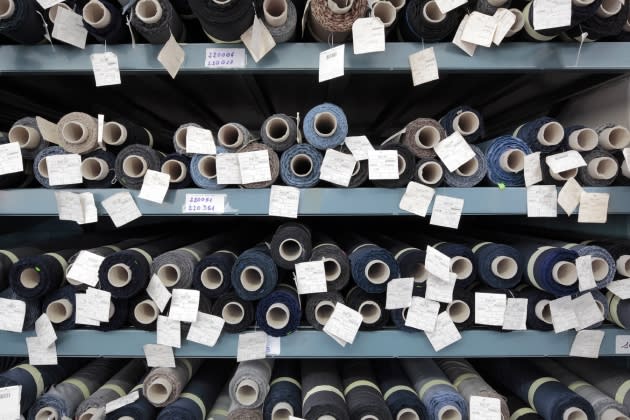Confindustria Moda Issues Requests to Incoming Italian Government

MILAN — The Italian fashion industry is roaring in 2022 but prospects may be less rosy for the future, warned sector association Confindustria Moda as it issued requests to the incoming government.
The sector comprises around 60,000 businesses and employs 600,000 workers, a strong component of the country’s manufacturing industry. In 2021, it logged revenues of 83.3 billion euros, which is on track to jump 10.5 percent this year to 92 billion euros.
More from WWD
Yet unlike other industries, it is largely made up of small and medium-sized enterprises typically more fragile and subject to headwinds, including rising costs for energy and materials, inflation and geopolitical instability.
“The challenge ahead is among the most complex we ever faced,” said Confindustria Moda’s newly appointed president Ercole Botto Poala. “The sector…is a resource to be valued in order to grant economic growth to the country in upcoming years,” he added.
In the first half of the year, revenues of the sector soared 18.2 percent compared to the same period in 2021, boosted by exports. However, rising costs for energy and material supply are denting the bottom line, which could undermine the survival of the sector, Confindustria Moda claimed.
The association laid out requests for the incoming government spanning from fiscal relief benefits to programs aimed at supporting internationalization, digitization and sustainability.
After general elections took place at the tail end of Milan Fashion Week last month, Giorgia Meloni, the leader of the far-right Brothers of Italy party, is expected to be mandated by the country’s president with forming a new government.
The organization helmed by Botto Paola is urging authorities to take action against rising energy costs hoping for a price cap to be defined on a European or Italian level. Meloni has been vocal in recent weeks about the need to uncouple the price of gas and electricity, a scenario that Confidustria Moda is also in favor of.
The association is asking the government to ensure employees can be granted 100 euros in extra monthly salary exempt of taxes throughout 2023 to help them combat inflation and that fashion prototyping continues to generate a tax credit, as is the case for technological and scientific activities.
The association is also asking the government to further boost internationalization via support of the sector’s companies for attending trade shows and other events organized by ICE, the Italian trade agency, and to channel resources helping its sustainable and digital transition, seen as key to compete on a global scale.
A longtime topic of conversation among fashion supply chain’s players, education of the workforce is considered crucial and Confindustria Moda expects the government to do its part in promoting it.
Separately on Wednesday, the association revealed it has forged a three-year link with Rete TAM, Italy’s network of schools dedicated to educating professionals in the fashion and textile sectors, and Unioncamere to further align demand and supply laying out a guidebook of needed skills and promoting campaigns geared at drawing interest among young people.
“Our requests to the government are geared toward channeling funds toward actions that could have an economic return for the entire country. Our [manufacturing] districts are spread across the territory, from north to south, and under the right conditions can represent an engine for Italy,” Botto Poala said.

